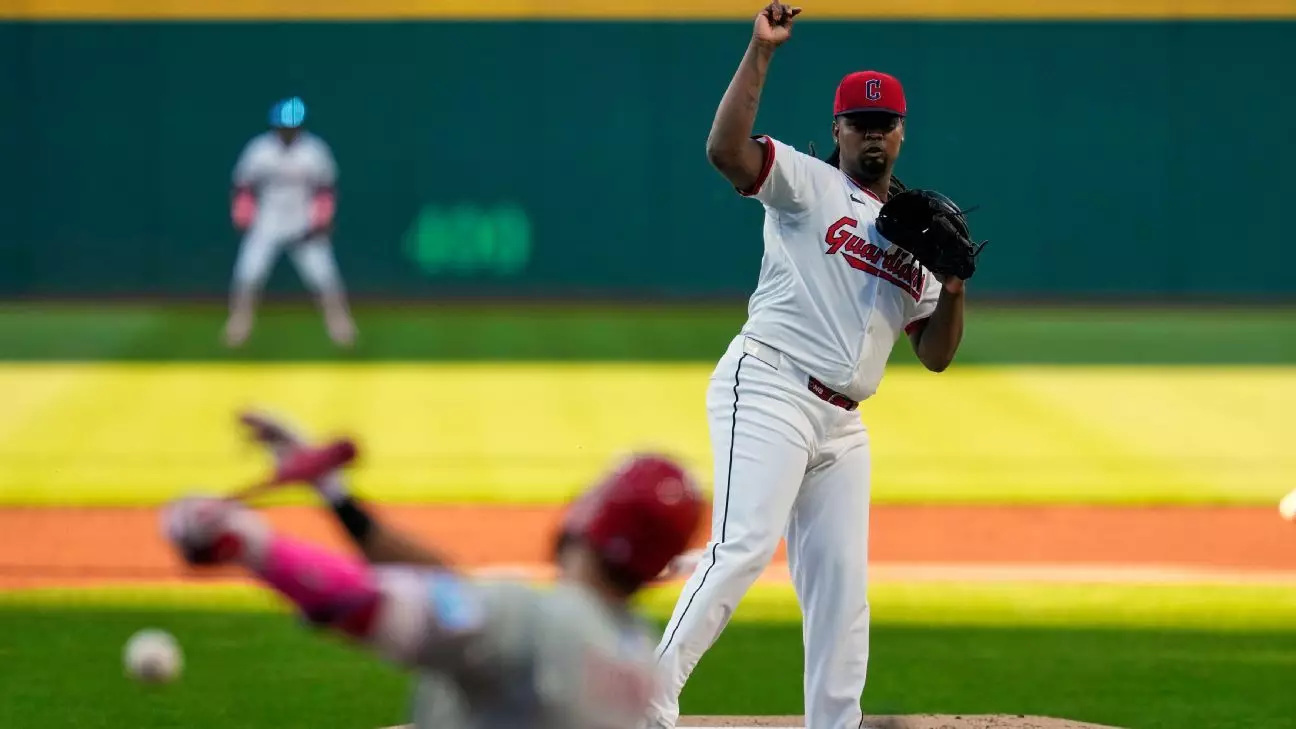Major League Baseball finds itself at a critical crossroads as the recent investigation into pitcher Luis Ortiz exposes the darker side of professional sports—gambling’s insidious influence. While the league has historically prided itself on tradition and integrity, the emergence of such allegations threatens to undermine its core values. It’s not merely about one player or a single incident — it’s a warning bell signaling that the boundaries between sport and gambling are dangerously blurring, risking the reputation that baseball has meticulously built over decades.
This investigation does more than just cast doubt on Ortiz’s actions; it reveals a systemic vulnerability that must be addressed urgently. The fact that sportsbooks are now monitoring microbets on the outcomes of first pitches accentuates how deeply gambling has infiltrated the sport. These microbets, often trivial on the surface—such as betting on whether a first pitch will be a ball or a strike—can serve as subtle entry points for corruption, especially when players or insiders see the lucrative potential of manipulating a game based on minimal actions. This is a disturbing development that demands a serious re-evaluation of how the league manages its association with gambling industries.
The league’s approach to this crisis appears cautious but insufficient. Placing Ortiz on unpaid leave until the investigation concludes is a step, but it seems reactive rather than proactive. MLB needs a comprehensive overhaul of its policies and a more aggressive stance on monitoring and preventing gambling-related irregularities. The culture surrounding sports betting has spiraled out of control, and merely suspending a player temporarily does little to address the root of the issue—it merely treats the symptoms, not the disease.
Gambling’s Erosion of Fair Play and Trust
The broader concern centers on the erosion of trust between fans, players, and the league. When allegations like Ortiz’s come to light, they feed into a narrative of corruption and unfair play, tarnishing the integrity of the game for all spectators. Baseball, often celebrated for its purity and history of fair competition, risks losing its stature in the eyes of fans if gambling scandals are not handled with transparency and vigor.
Furthermore, the potential for biased outcomes—whether through explicit corruption or subtle manipulation—is alarming. It’s not just about a single pitcher’s integrity; it’s about the entire fabric of the sport being compromised. The comparison with the lifetime ban handed down to Tucupita Marcano for nearly 400 bets reveals a harsher standard for some, highlighting inconsistencies that could further damage the league’s credibility. Are players being held accountable uniformly? Or does the league’s stance on gambling fluctuate with the perception of each case?
Such disparities fuel a sense of injustice and cloud the league’s message about gambling policies. It’s imperative for MLB to recognize that its reputation is fragile—one scandal can undo years of positive branding. The league must ensure strict, uniform enforcement of anti-gambling policies and foster an environment where players understand that integrity is non-negotiable.
Balancing Entertainment, Regulation, and Ethical Standards
As sports betting becomes more mainstream, the challenge for representations of the game is to strike a delicate balance—embracing modern entertainment avenues while upholding the highest standards of fairness. MLB’s cautious measures, like paid leave pending investigation, are not enough. There must be clear, enforceable policies that deter and detect misconduct before allegations escalate into full-blown scandals.
The leagues’ relationship with betting companies needs critical scrutiny. It’s no longer just about managing the risks posed by individual players but also about safeguarding the sport from being used as a tool for manipulation. Transparency and rigorous oversight are essential in winning back public trust. This crisis, although alarming, presents an opportunity: to rebuild a framework that prioritizes integrity over profits, and fans over fleeting entertainment.
Ultimately, baseball’s challenge isn’t just about catching misconduct post-factum but about fostering a culture of ethics that permeates every level of the sport. Players, officials, and organizations must align their values with the sport’s longstanding ideals of fairness and honest competition. If not sufficiently addressed, the seeds of corruption will continue to grow, poisoning the game from within—a consequence that no passionate fan or proud organization can afford to accept.


Leave a Reply